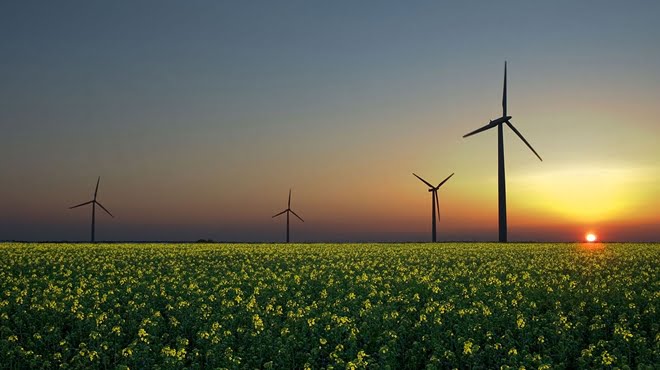By Larry Claasen
SOUTH Africa’s energy crisis, along with the global move to environmental sustainability has the potential to be a big economic drive, says GreenCape, in its Large-scale Renewable Energy Market Intelligence Report 2024.
The report, which was written for foreign and local investors looking to invest directly in the South African renewable energy market, said the total potential large-scale renewable energy, energy storage, and component manufacturing market size would be worth R468-billion by 2030 or R78-billion per year.
It said the local manufacturing of components for large-scale renewable energy was a huge opportunity. The government’s efforts to foster the sector with various incentives, along with growing demand from the private sector could boost local component manufacturing.
One of the drivers for local manufacturing is the South African Renewable Energy Masterplan (SAREM), created by the Department of Mineral Resources and Energy.
“The aim of SAREM is to foster the industrial and inclusive development of renewable energy value chains in South Africa. Stakeholder engagements for SAREM concluded in 2023, with final ministerial approval expected in 2024,” said the report.
The report pointed out that local manufacturing was already a well established practice when it came to public procurement of renewable energy.
“The local content spent reported for IPPs [Independent Power Producers] that have started construction amounts to R64,5-billion against a corresponding project value (as realised by the end of 2022) of R130.2-billion.”
The private sector steps in
Aside from boosting the South African industrial sector, the renewable energy market has also been supported by the rapid growth in private sector procurement.
The report noted that in 2023, the private sector was quick to take advantage of South Africa’s rapidly liberating energy market and were quick to close deals directly with IPPs.
It said South Africa’s large-scale renewable energy sector has historically been driven by the Renewable Energy Independent Power Producer Procurement Programme (REIPPPP), a government programme managed through the Independent Power Producers Office (IPPO).
But in 2023, a change happened. Off take agreements grew “at a rapid pace” and are expected to be a large driver of future renewable energy projects.
Mining houses in particular were not slow when it came to buying renewable energy.
“Mining companies in South Africa are currently planning approximately 43MW of combined solar PV and battery energy systems and over 1,2GW of solar PV systems, making it a key player in the private energy space.”
It added: “The mining sector is especially active in growing the renewable energy market and many mining companies are also investing in project development and ownership.”
Aside from the mining sector, the report also said the opening up of the energy market would also allow small private energy players and low-energy users to get a foothold, which would diversify the energy mix.
The growing demand by regulators in key overseas markets to have companies keep track of how much carbon dioxide it generates when it comes to making their products is also driving demand for renewable energy.
All of these factors means the private sector is becoming a huge growth drive.
The report projects private procurement market sizes to grow to 6GW for solar Photovoltaics (PV) and 4 GW for wind power by 2030, with corresponding investment values of R116-billion and R98-billion, respectively. The average growth rate is expected to be R36-billion per year.
The public sector is also expected to give the sector a boost.
Though the public procurement market is expected to be smaller, it is still forecast to make a sizable contribution to the South African energy market and the broader economy.
The public procurement market is estimated at 2,6GW of solar PV, 3,2GW of wind power and 3,7GW of battery energy storage systems by 2030.
“The investment value is estimated to be R50-billion for solar PV, R79-billion for wind power and R83-billion for battery energy storage systems. The total investment value is R212-billion by 2030 or ~R35-billion per year.”
Some huge barriers
Though the renewable energy sector appears to have a bright future, the report pointed out that the sector had to deal with some huge hurdles.
The grid capacity was insufficient, the carbon tax was still too low to drive businesses to consider renewable energy and the skills to develop the sector were in short supply.
Policy uncertainty is also an issue and the poor financial standing of many municipalities means they are might not be able to procure renewable energy.
